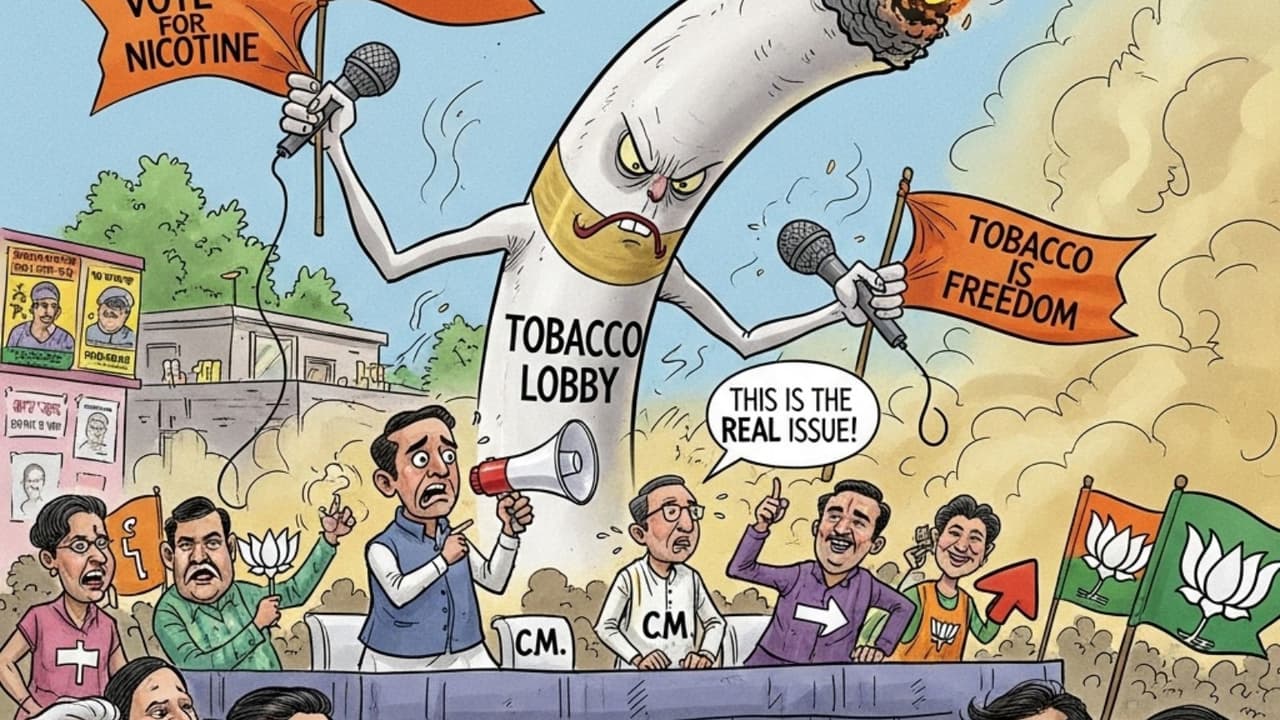Bihar assembly elections have become a major issue of discussion in 2025. This issue related to livelihood, tradition, politics and anti -Naxal strategy is giving a new turn to the electoral debate. Know how Bidi has launched smoke in the politics of Bihar.
Luv Kumar Mishra, Senior Journalist, Patna: As the Bihar assembly elections are coming closer, everyone hoped that the debate would roam on the old issues, employment, law-system, flood and caste mathematics. But this time neither roads are in headlines nor rail. Election has become the center of discussion. Now the bidi has started burning in Bihar’s election campaign. Prime Minister, Narendra Modi has also joined the dispute. In the election meeting of the National Representative alliance on Monday in the frontier region Purnia, he accused the opposition parties that Bihar is now being compared to beedi, which is an insult to Biharis.
The story began not from Bihar, but from Kerala. When Finance Minister Nirmala Sitharaman announced to reduce GST from 40% to just 5% on Bidi, it should have only improved one tax. But a leader of Kerala Congress called it “gift for Bihar”. The fire broke out from here. The opposition India coalition accused the government of playing “smoke games” to woo voters.
Bidi in Bihar is not just tobacco leaves, it is a livelihood, a tradition. More than two lakh families are engaged in making bidis in districts like Munger, Jamui and Nalanda. Women and children roll from house to house from generations. The remuneration ranges from 280 to 400 rupees of the day, but its price pays health – the diseases of the briefs are common here.
Bihar is at number five in the country in drinking bidi. Despite this, it is still a permanent means of earning in rural homes. Not only this, tobacco is cultivated in the fields of Vaishali, Muzaffarpur and Samastipur. Large companies send village-village agents directly buy leaves from farmers. Khaini is equally deeply connected to western UP, Jharkhand and Madhya Pradesh.
The story did not stop here. The most important part of bidi in Chhattisgarh and Madhya Pradesh – Tendupatta also touches the debate of safety. This leaf is a lifeline of tribal families in areas like Bastar, Surguja, Raigad, Mandla and Dhar. Generations have been spending the leaves from the forests, tying bundles, selling and selling. Governments have organized it continuously – even bonus and encouragement through the development corporations. There are more than 50 lakh registered tendupatta collectors in Chhattisgarh itself.
But this business has also been a source of earning of Naxalites. For years, he kept this business in his possession and bought weapons exploiting the tribals. Big leaders, whether Congress or BJP, have been affecting this business.
Now the government argues that decreasing GST on bidi is not an electoral move, but a part of the naxalite’s economic power cutting strategy. Under the supervision of Home Minister Amit Shah, plans are being made to strengthen tendupatta and bidi trade through cooperative societies, so that the Maoist system can be strangled. The goal is to remove it on the ground by March 31. But the politics of Bihar is not satisfied with this argument. India says coalition. Whatever the reason, the benefits of Bihar are getting directly to the voters of Bihar. And just before the election, its timing does not seem to be a coincidence.
Tobacco, livelihood, tradition and politics, are all hungry. This is the reason why Bidi controversy is solving the electoral ground this time. It will not only be a fight for manifesto and rallies, but will also be on the most effective manner in whose hand the “story of bidi” is heard.
